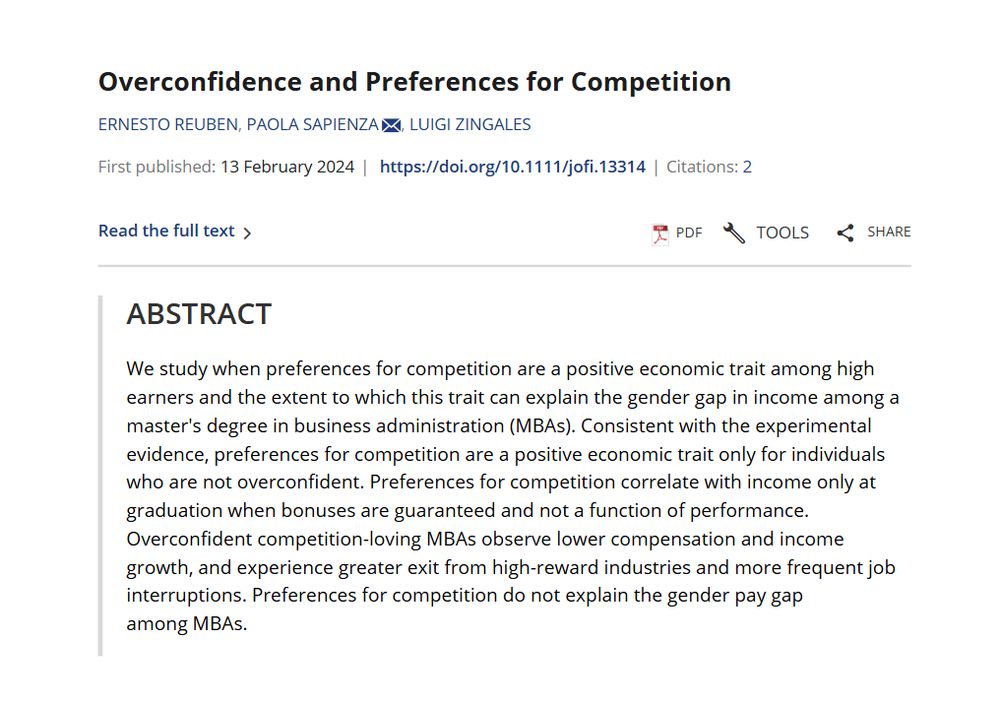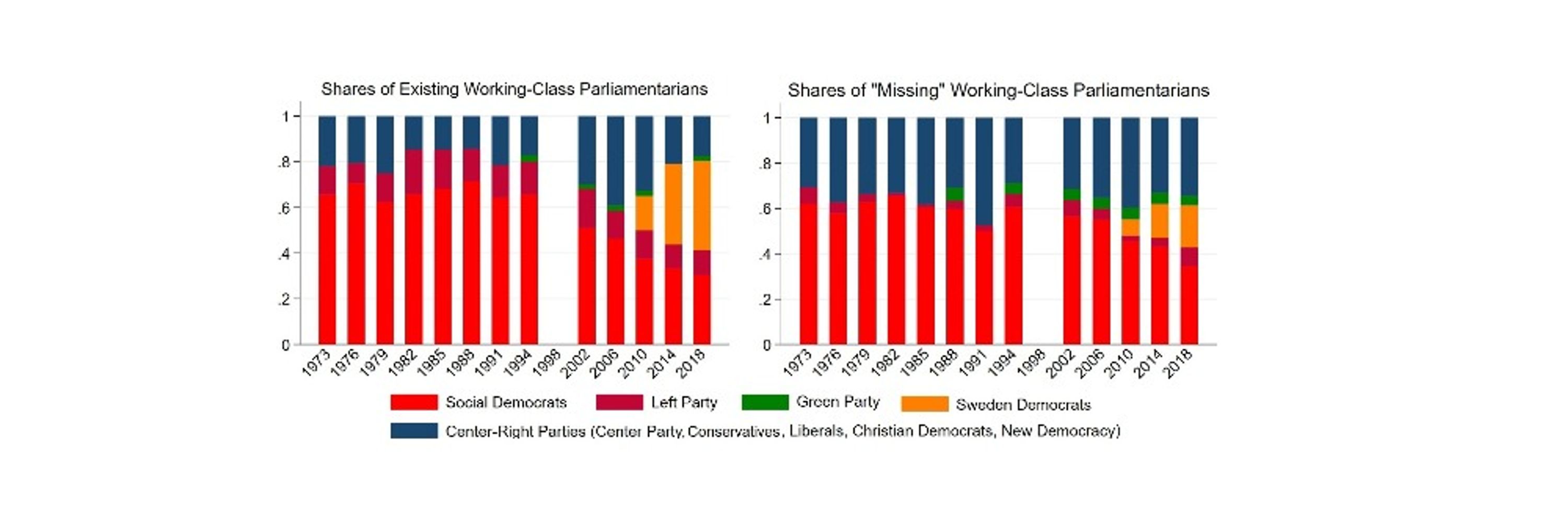

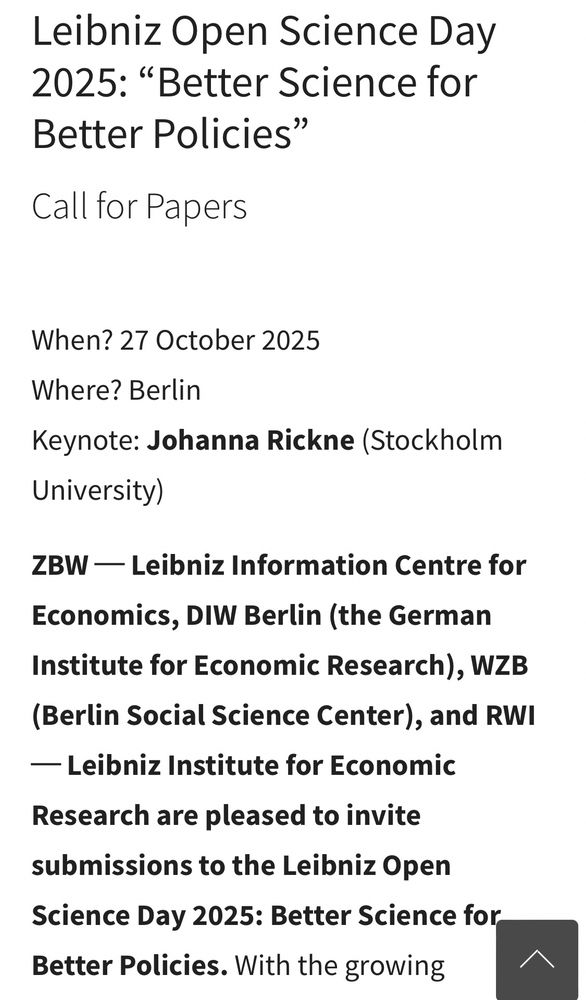



Co-authors 🤩 @abrarbawati.bsky.social, @josefinemagnusson.bsky.social Moa Frödin

Co-authors 🤩 @abrarbawati.bsky.social, @josefinemagnusson.bsky.social Moa Frödin
Male-dominated jobs with high outsider contact are rare and differ from the overall pattern. Women in these male-stereotyped roles, like security guards or police, face high risks of sexual harassment from both insiders and outsiders (the latter shown in the figure).
7/
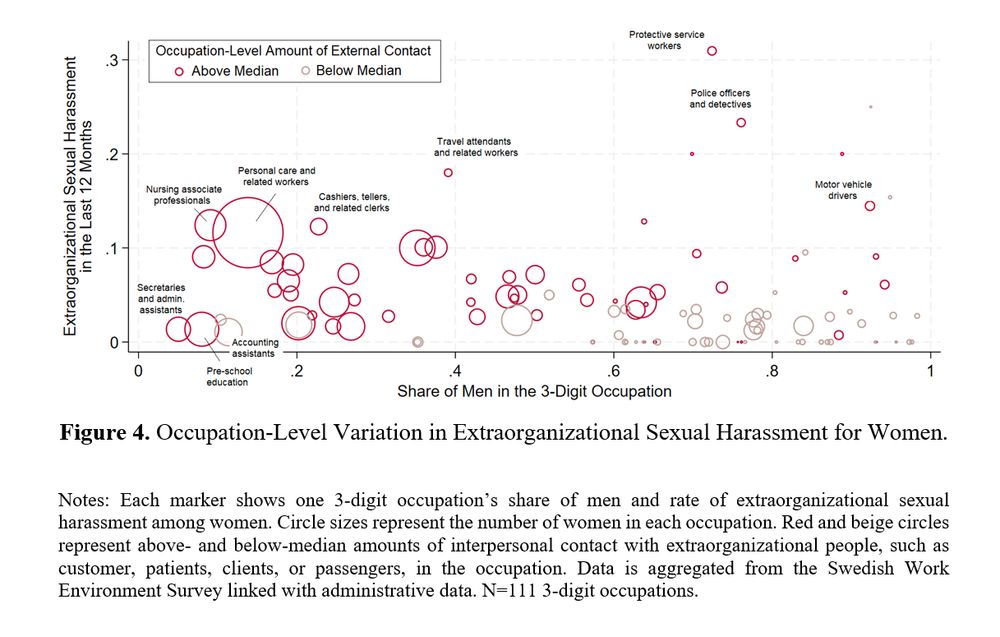
Male-dominated jobs with high outsider contact are rare and differ from the overall pattern. Women in these male-stereotyped roles, like security guards or police, face high risks of sexual harassment from both insiders and outsiders (the latter shown in the figure).
7/
These jobs are mostly held by women.
The level of contact with outsiders is predictive of risk.
5/

These jobs are mostly held by women.
The level of contact with outsiders is predictive of risk.
5/
4/

4/
Our new study finds two distinct patterns depending on whether harassment comes from inside or outside the workplace.
CEPR WP: cepr.org/publications...
Ungated: drive.google.com/file/d/1jPOV...
🧵 1/
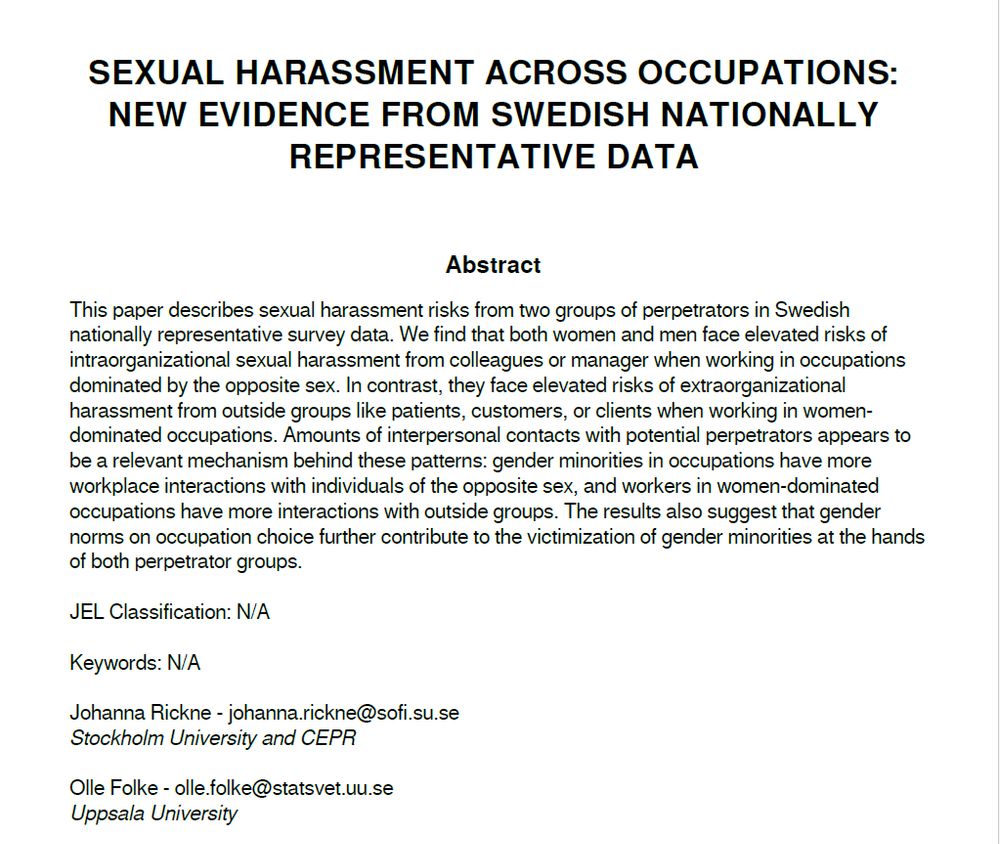
Our new study finds two distinct patterns depending on whether harassment comes from inside or outside the workplace.
CEPR WP: cepr.org/publications...
Ungated: drive.google.com/file/d/1jPOV...
🧵 1/





examines the labor market backgrounds of politicians in Sweden’s Green and Radical Right parties. Here’s what I, @ollefolke.bsky.social, and Jan Szulkin found:
📄 Paper: doi.org/10.1086/730722 1/12
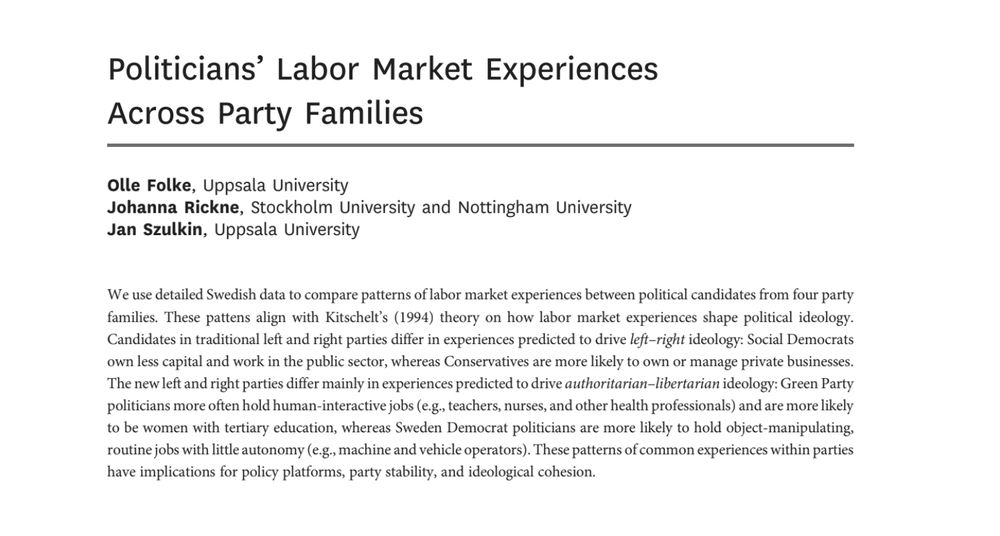
examines the labor market backgrounds of politicians in Sweden’s Green and Radical Right parties. Here’s what I, @ollefolke.bsky.social, and Jan Szulkin found:
📄 Paper: doi.org/10.1086/730722 1/12

